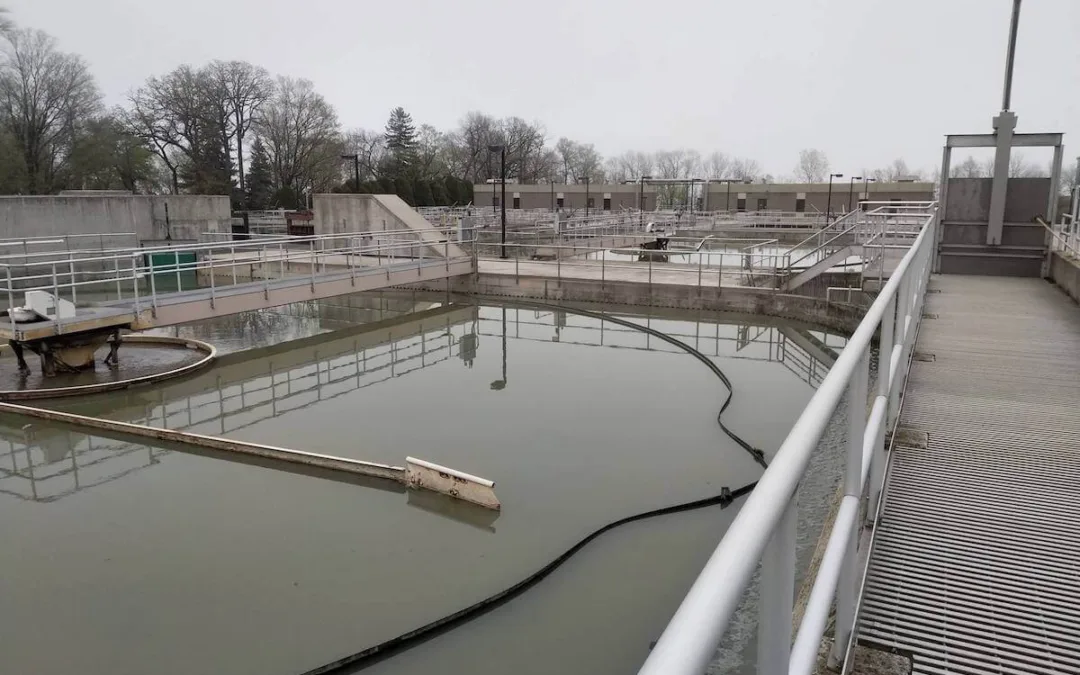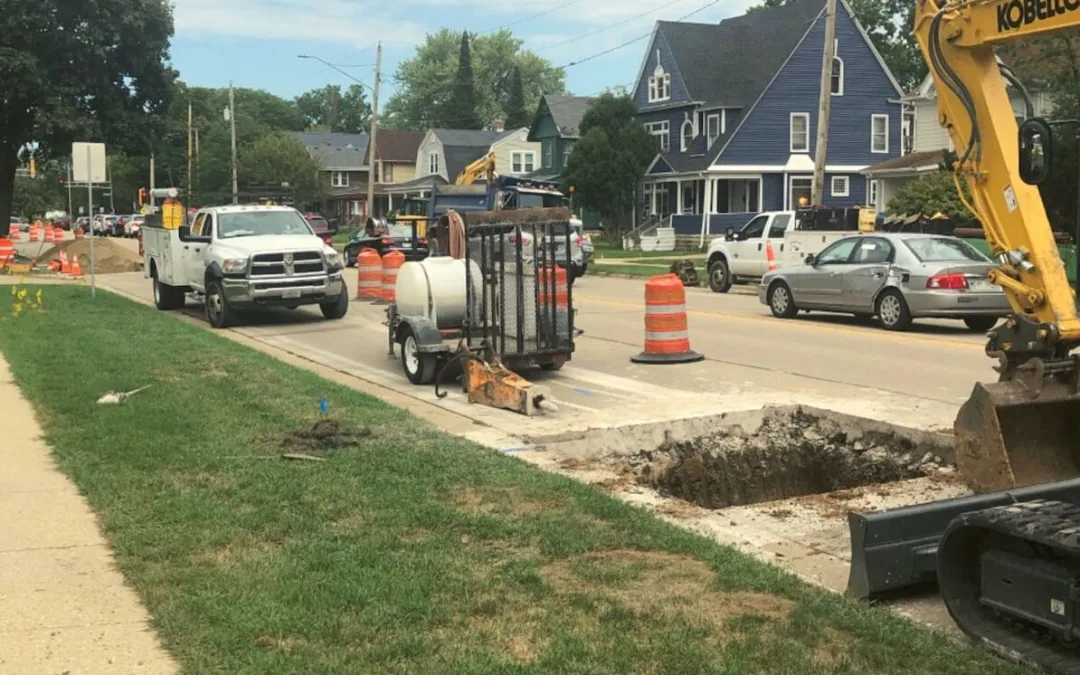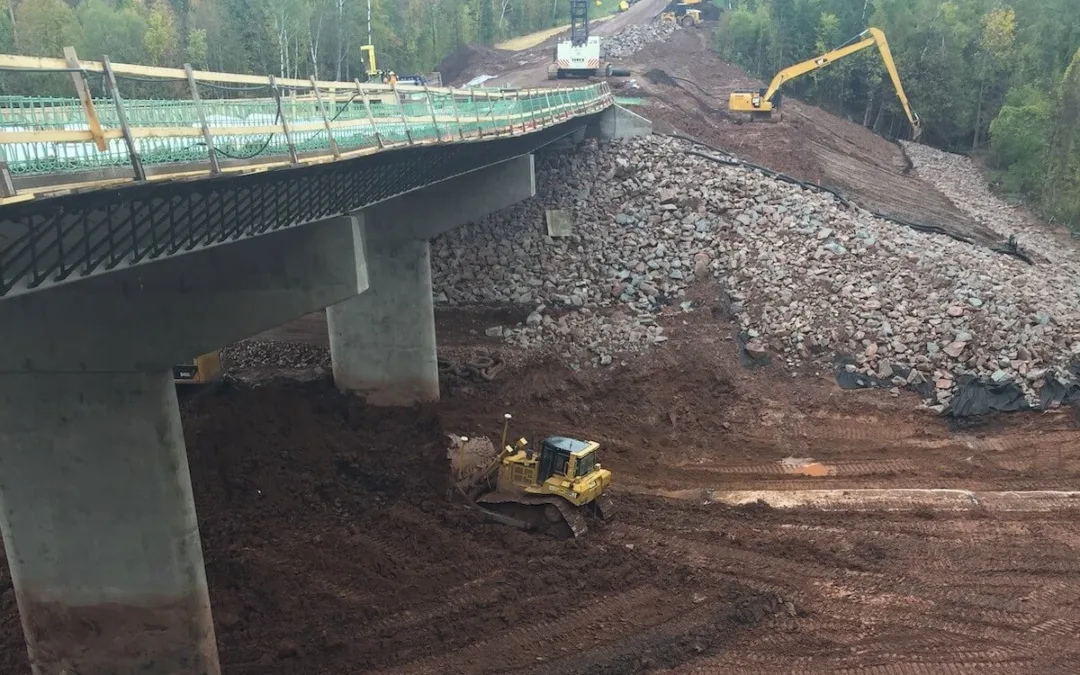
#image_title
#image_title
Public meeting shows frustration at years of budget cuts
Steve Acheson does not draw a lot of parallels between his life in Wisconsin and his service in Iraq, but as he drives the crumbling roadbeds of southwest Wisconsin with the kids he coaches in seventh grade basketball there is a legitimate safety concern.
“I’m more afraid for my life driving on these roads than I was when I was deployed in Baghdad,” Acheson said.
He was one of more than 60 people who filled the library at Pecatonica High School Monday night for a community meeting titled, “Rough Roads in Southwest Wisconsin: A Community Discussion.”
The event drew local officials from Lafayette, Iowa and Green counties, as well as state legislators who represent areas to the north and east, Sen. Jon Erpenbach, D-Middleton, and Rep. Sondy Pope, D-Mount Horeb. Two area Republican lawmakers, Sen. Howard Marklein, R-Spring Green, and Rep. Todd Novak, R-Dodgeville, were invited but did not attend.
Those at the meeting promoted a one-two plan: improve the connections northward toward Madison, especially to Highway 18-151, a main thoroughfare to Madison, and the resulting improvements will help with jobs all along the corridor. Those in attendance Monday night signed petitions asking for help improving highways F, 78 and 39, which connect the area to the four-lane Highway 18-151.
Fixing those roads is not only a matter of public safety, speakers said, but of the survival of the communities who rely on them.
“Highway F is the artery that runs through our school district,’’ said Pecatonica District Administrator Jill Underly. “There’s an economic importance. The school districts in our area face declining enrollment, and families aren’t going to move here if there aren’t good roads to get them to their jobs.”
Mike Berg, a farmer who organized the meeting, agreed.
“Small towns in southwest Wisconsin are being forgotten,” he said. “No one wants to move here if they have to drive on rough roads to get to Madison, which is where the jobs are.”
Iowa County Highway F, especially, was the focus for its washboard roadbed, crumbling shoulder, and steep drop-offs.
Julie Dochnahl, who drives Highway F several times a day to take kids back and forth to school, said she fears for her new teenage driver. The extensive patching has covered up the painted lane lines.
Craig Hardy, the Iowa County road commissioner, explained that the county has been planning to improve Highway F for a decade. A combination of declining aid from the state, changing rules, and levy limits, also imposed by the state, have made it impossible.
Chris Narveson, his Green County counterpart, agreed that the counties have been struggling to maintain their roads for years.
“We’ve been eating our own seed corn (by deferring maintenance),” he said. “The real story is that we are all in trouble, not just the counties, but the towns. How are we supposed to fund the roads on a negative? Our hands are tied.”
Iowa County Board Chairman, John Meyers, said he was in favor of the levy limits when they were imposed, but now believes that years of not being able to maintain infrastructure has local government in slowly growing counties in a bind.
“We are in a hole, and not just a financial hole,’’ Meyers said. “We are creating a deficit every year by not maintaining our infrastructure.”
Many of the comments were directed at Joel Nilsestuen, assistant secretary of the Wisconsin Department of Transportation.
Nilsestuen explained that Gov. Tony Evers campaigned on reversing a decade of declines in state highway funding. Evers’ first budget included more than $465 million in new funding for highways, local roads and transit, with about $320 million of it for highway repair.
In recognition of the sad state of Wisconsin roadways, Evers also included a one-time fund of $75 million for peer-reviewed road projects that will help boost local economies.
This week, representatives of town, county and municipal government will meet to rank projects that applied for these “Multimodal Local Supplemental” grants. Improving Iowa County Highway F is on the docket, but so are dozens more projects.
“We had over 1,600 applications totaling over $1 billion,” Nilsestuen said. “I know that $75 million sounds like a lot but there will be hard choices.”
Southwest Wisconsin is not alone in having roads that need attention, he added.
Sen. Erpenbach said the trouble began more than a decade ago, when the state stopped indexing increases to the gas tax to inflation. Since then, he says that the Legislature has refused to increase the gas tax for 14 years, preferring to increase vehicle fees.
“This means that the money does not come from anyone who drives in Wisconsin but doesn’t live in the state. It’s all on us,’’ he said. He then asked everyone who supports a gas tax to stand, and the entire room stood up.
Narveson, from Green County, echoed this sentiment.
“They could change all this tomorrow by increasing the gas tax, so that the ones who use the roads pay for the roads.”
Politics

Biden makes 4 million more workers eligible for overtime pay
The Biden administration announced a new rule Tuesday to expand overtime pay for around 4 million lower-paid salaried employees nationwide. The...

Biden administration bans noncompete clauses for workers
The Federal Trade Commission (FTC) voted on Tuesday to ban noncompete agreements—those pesky clauses that employers often force their workers to...
Local News

Readers Poll: Top Bowling Alleys in Wisconsin
Looking for the best bowling in Wisconsin? Look no further! Our readers have spoken in our recent poll, and we have the inside scoop on the top...

8 Wisconsin restaurants Top Chef judges are raving about
Top Chef’s 21st season is all about Wisconsin, and on-screen, it’s already apparent that the judges feel right at home here. But, while filming in...




